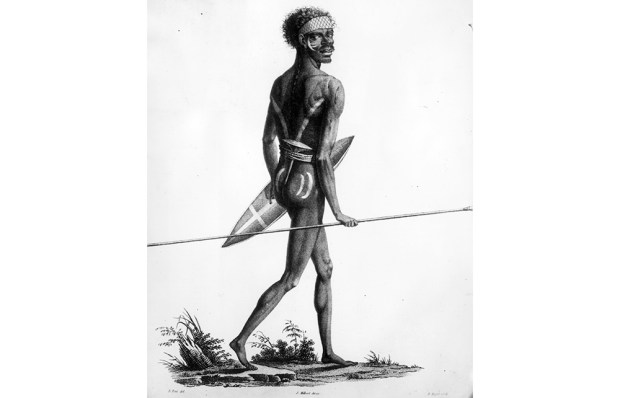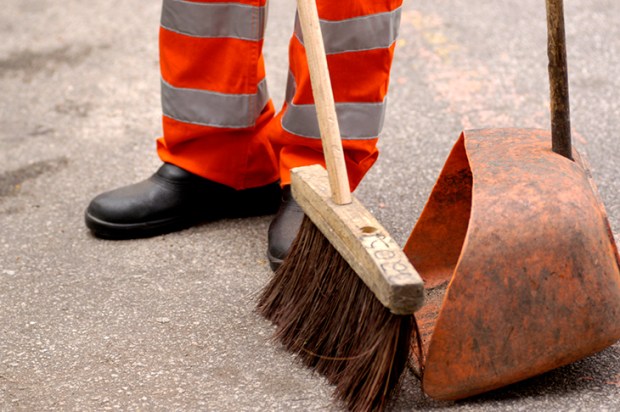‘When I was 14, my father was so ignorant I could hardly stand to have him around,’ wrote Mark Twain, ‘but when I got to be 21, I was astonished at how much the old boy had learned in seven years.’ Evidence, perhaps, that notwithstanding his then progressive stand on abolition, imperialism and women’s suffrage, a centenarian Twain might have agreed with Winston Churchill that, ‘If a man is not a socialist by the time he is 20 he has no heart, and if he is not a conservative by the time he is 40 he has no brain’. Like many Speccie readers, I suspect, I can identify easily enough with the second aperçu, but not so much the first. As a mathematician of some accomplishment, my dad wouldn’t have ticked most people’s ignoramus box. But having spent his entire adult life on university campuses, teaching a subject which doesn’t require you to actually talk to anyone (he lectured in Japan without knowing a word of Japanese), he was hardly what anyone would call worldly, either. So the cluelessness about rock music, fashion and football which I deplored in him as a teenager was only compounded by the real world naiveté which I observed in him after I’d left university myself. And the longer I spent in that real world the more strongly his disconnect with it impressed itself upon me. My dad, then, was a central casting ivory tower boffin; someone who knows that a tomato is a fruit, not a vegetable, but doesn’t know not to use it in a fruit salad.
‘Put not your trust in princes,’ the King James translation of Psalm 146 warned post-Magna Carta England. Put not your trust in priests, was the central message of the European Enlightenment. Put not too much trust in eggheads like my dad was the lesson modern Western leaders learnt from their indulgence of scholarly scaremongers like Thomas ‘We’re all going to die’ Malthus and Francis Galton, the father of eugenics. And it is to the West’s collective benefit that no leader was more wary of the influence of such people than the man who did most to bring the worst crisis of the 20th century to a satisfactory conclusion. If Churchill hadn’t stuck to his belief that scientists and other experts should be ‘on tap, not on top’, if he had let the opinions of advisors override his own political and military instincts, we might all be speaking German today. Yet less than a century later, confronted by two more truly global threats, the leaders of almost every Western democracy did precisely the opposite. We’ll never know the full cost of allowing unelected experts to dictate our responses to Covid and climate change, but for many countries those decisions have already been every bit as economically devastating as the second world war.
One way we can avoid making the same mistakes again is to elect the kind of leaders, who, faced with any sort of perceived or actual crisis, will not pass the policy buck. And that doesn’t just mean being wary of individuals like Michael ‘Hockey Stick’ Mann and Tim ‘Rain Man’ Flannery. It also means not deferring to faceless, unelected, unaccountable bodies like the World Health Organisation and the International Panel on Climate Change. Given that modern day Canberra – like modern-day Westminster and Washington – is as much a cocoon as any university campus, Australians might also think twice about electing people who have never worked in any other environment. Who have never, in other words, had a job which required them to engage in a frank and effective way with the ordinary people whose interests they will be paid to protect. The gap between Beltway and blue-collar America which Donald Trump exploited so effectively in 2016 has become such an election issue that his current opponent has started talking for the first time in her life about the vanishingly small slice of it which was spent working in McDonalds. Things aren’t quite so bad for her Australian counterpart. Anthony Albanese’s Wikipedia entry does not say whether the gap year gig he had with the Commonwealth Bank included stints as a teller. But if it did it would certainly have helped him to feel the pain of the millions of Australians currently struggling under the yoke of his energy policy and net zero ambitions. Meanwhile, it is clear that the years which Peter Dutton spent as a Queensland cop certainly equipped him to engage in a frank and effectively way with ABC reporters – if not real Australians.
Got something to add? Join the discussion and comment below.
You might disagree with half of it, but you’ll enjoy reading all of it. Try your first month for free, then just $2 a week for the remainder of your first year.














